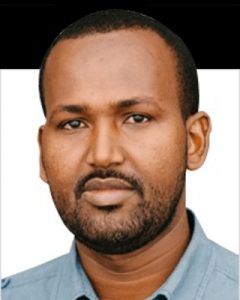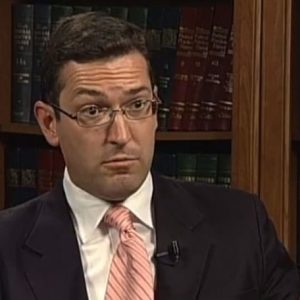Migration is a controversial issue and people have strong opposing views about it. How those views are formed is largely through the media.
As Rizwana Hamid, director of the Centre of Media Monitoring, who chaired the EJN’s webinar on reporting migration on 14 July, said “what people know about it comes largely from what they read, hear and see in the media”.
This is why the EJN organised a webinar because how journalists write and report about the issue can have a profound effect on how society views migrants and migrants view themselves.
The panel of five experts covered the reporting of a wealth of issues. They included the now widely known Windrush scandal that saw Afro-Caribbean people who had lived in the UK for 50 years being illegally deported, to the treatment of asylum seekers crammed in substandard camps, and the arrival of Hong Kong nationals to this country.
There was a searing personal testimony from Somali-born journalist, Jamal Osman, now Channel 4’s Africa correspondent, on what it was like as a migrant to come and work in the UK.
The overall picture on migration was set by Marzia Rango, data innovation and capacity building co-ordinator at the International Organisation for Migration in Berlin. She disclosed some startling figures and said there should be a change in the narrative of reporting migration.
Using a UN definition of people working and living in countries where they were not born, there were 281 million migrants. Of these only 26 million were refugees and one million were asylum seekers. The majority – 60 per cent – were working, contributing to the country and sending back 540 billion dollars to their families at home, outstripping foreign investment in developing countries. In context, the number of migrants coming to the UK was 132,000.
Amelia Gentleman of The Guardian, told how the Windrush tale started with one case reported by a charity leading it to “snowball”. A year later it became clear that the Home Office had misclassified Afro-Caribbeans in the UK as having no right to stay here. This became worse when successive governments after 2012 demanded that people had to prove their citizenship before they had the right to work, get NHS treatment, social security benefits or rent property.
“Thousands of people were affected but it was underreported and it was a mystery to me that it was so”.
She said the combination of immigration stories being very complicated, MPs offices being overloaded with immigration cases, the “toxic issue of illegal immigration,” and the people themselves being embarrassed about it all could have contributed to this.
“The Home Office was also adamant that it was their own fault”.
Jamal Osman described his experience as a migrant from war-torn Somalia when he came to the UK. “Here the powerful, the politicians, a big section of the media, the right-wing, feel that you have to take on these poor people, who have suffered enough, and make them the enemy”
He described when he had his first job as a van driver he was the only asylum seeker there and his colleagues would come up having read The Sun or the Express say “Jamal what are you doing to our country”
“They blame me and say look what you do, you are bad people.”
He said he thought journalists didn’t know what they wrote affected people. He said the situation had got worse since social media where it always in your face. “Why do they hate us, they are being brainwashed by the media.”
Chantal da Silva, a freelance journalist working for Channel 4 and Bureau of Investigative Journalism, told how the Home Office had tried to cover up appalling conditions for asylum seekers at Napier Barracks when there was an outbreak of Covid 19. She discovered documents on the internet which told a different story and Channel 4 took up the story. She emphasised that as a freelance it was difficult to get stories placed as migration was not often the issue of the day.
Benedict Rogers, chief executive of Hong Kong Watch, a journalist and human rights campaigner, said potentially five million people were eligible for a visa to come from Hong Kong to the UK. He expected 300,000 to come but there are a number of drawbacks.
“None of the protestors born after 1997 are eligible and can only come as asylum seekers”
He said there was a misconception in the media that all people from Hong Kong were well-educated and could speak English, while there were many people who can’t speak English and are not well-educated.
He expected this to be a challenge when they came here as anti-Chinese sentiment has grown and he hoped it would not translate into fears of Hong Kong people taking their jobs which would be dangerous.
The session finished with a lively discussion with people raising issues like journalists not calling out politicians who made racist statements to create division and how some editors have already decided what stories should be written about migrants and they were not positive.
Watch the video of this event
Our panel:






The event was be chaired by Rizwana Hamid, Director of the Centre for Media Monitoring and EJN UK Committee member and our panel included:
Amelia Gentleman – a multi-award-winning journalist who spent six months working on the Windrush scandal for The Guardian which had led to the illegal deportation of Afro Caribbean people who had settled here for decades. She is the author of The Windrush Betrayal: Exposing the Hostile Environment which details the scandal and the effects it had on people’s lives.
Jamal Osman – a Somali-born award-winning journalist, broadcaster and filmmaker. He is the Africa Correspondent for Channel Four News and has written articles for The Guardian and reported for Al-Jazeera English. His scoops include interviews with Somali pirates, the al-Qaeda-linked Islamist group, Al-Shabab, and an exposure of the illegal trade in UN food aid.
Marzia Rango – the data innovation and capacity building co-ordinator at the International Organisation for Migration in Berlin and is currently managing a project focusing on migration across the Mediterranean to Central Europe. She will be able to give an overall picture of the scale of migration.
Benedict Rogers – the co-founder and chief executive of Hong Kong Watch and co-founder and deputy chairman of the Conservative Party’s Human Rights Commission. He is a human rights activist and a journalist who has written extensively on the plight of people in Hong Kong where democracy is being suppressed by the Chinese authorities.
Chantal da Silva a a freelance journalist who helped expose the appalling conditions asylum seekers face in Napier Barracks despite attempts by the Home Office to hide what was happening. She works for numerous publications including the Independent, the Bureau of Investigative Journalism, Channel 4 and many other TV channels. She focuses on immigration rights.